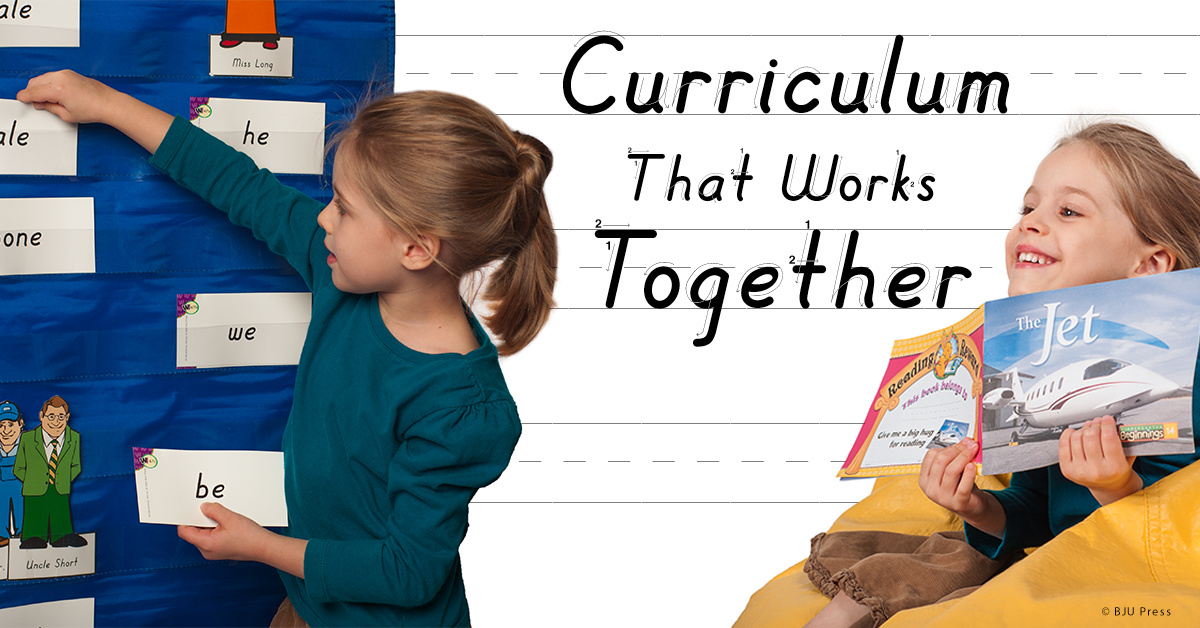It happened for the first time during our second week of homeschooling this fall. After finishing her English lesson, my second-grade daughter pulled out her spelling book to look at the day’s assigned worktext page. “Mom,” she yelled excitedly, “alphabetical order! I just learned this in English. It’s like I’m doing English and spelling at the same time!”
Since we use BJU Press for every subject, this scenario happens a lot. Concepts from one subject frequently appear in another. Sometimes spelling words show up on our handwriting pages. Sometimes the same phonics generalizations highlighted in our weekly spelling list also get reinforced during our reading lessons. Sometimes my daughter gets to practice the capitalization rules she learned in English while she also practices handwriting. The overlapping of these concepts in different subject areas is a good thing—a very good thing, in fact—for the following reasons.

1. Repeating concepts aids comprehension
Most of us have probably heard that “practice makes perfect.” We probably even tell our kids that, especially at times when they’re struggling with a difficult skill. Repeating a task over and over usually does help people become more proficient at it. Good educators use this same idea in their teaching or writing (a method called “spiraling”). With this approach, concepts are repeated several times in different ways and in various contexts. Each time, the child understands the concept a little better.
2. Encountering concepts in multiple subjects encourages real-life application
Ultimately, we want our children to use what they’re learning in our homeschool environment in everyday life, especially in service to the Lord. We want them to be able to proofread a church bulletin, write a legible and error-free thank-you note, and research and evaluate information. When our children are exposed to the same concepts in different subject areas, they’re more likely to understand the broad application of that knowledge. No longer will capitalization rules only apply to English worksheets—as your child practices those rules in spelling, handwriting, and reading, he or she will likely get them right when writing a personal letter to a grandparent.
3. Reviewing concepts saves time
The overlap of concepts throughout a curriculum also has a big benefit for homeschool moms everywhere. It saves time. I get excited when I look at a lesson and realize that we’ve already covered a concept elsewhere. I don’t have to re-teach it. I just review it and move on, saving precious time in our homeschool day.
Watch this video to see the curriculum we’re using in our homeschool.
Leave a Reply